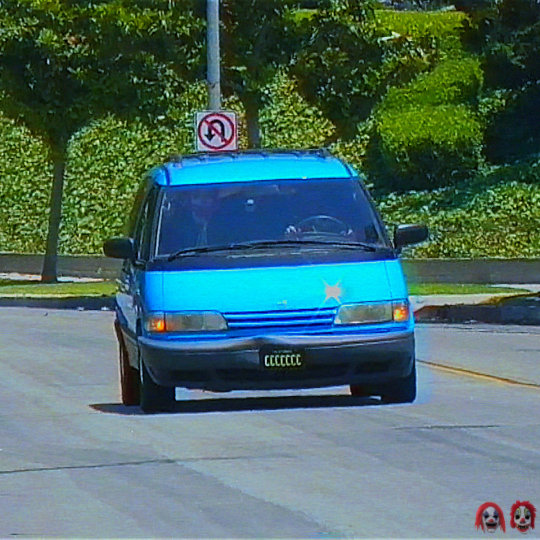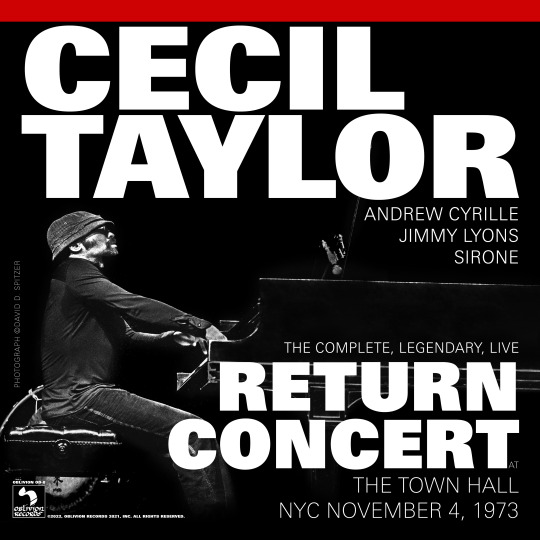#Avant-garde Jazz
Explore tagged Tumblr posts
Text

#Post-Bop#Avant-Garde Jazz#Hard Bop#Third Stream#Jazz#Experimental Big Band#1950s#1960s#1970s#USA#poll#Spotify
136 notes
·
View notes
Text
1971
This track's irresistible rhythmic drive, pulsating beat and hypnotic horn lines create an atmosphere that feels both earthy and otherworldly.
#Sun Ra#Sun Ra & His Myth Science Arkestra#Jazz#Free Jazz#Avant-garde#Avant-garde Jazz#Experimental#Chicago#Illinois#USA#America#American#Hard bop#1970s#70s#Music#Bandcamp
15 notes
·
View notes
Text

Tracklist:
flat earth • van • song • computers • tears of god • keyboard • bologna penis • McRonalds • you are pregnant • existence • end • infinite realm of incomprehensible suffering
Spotify ♪ Bandcamp ♪ YouTube
#hyltta-polls#polls#artist: clown core#language: instrumental#language: english#decade: 2020s#Experimental Rock#Electronic#Avant-Garde Metal#Clowncore#Avant-Garde Jazz#Cybergrind#Drumstep#Jazz-Rock#Noisecore#Impressionism#Breakbeat#Math Rock#Synth Punk
27 notes
·
View notes
Video
youtube
The Lounge Lizards - Live At Montreux 1982
7 notes
·
View notes
Text
ERIC DOLPHY
An incredible artist who shone as a flautist, clarinettist and saxophonist. An exuberant soloist and a musician permeable to the use of unconventional sounds.

Artista increíble que brilló como flautista, clarinetista y saxofonista. Un solista exuberante y un músico permeable a la utilización de sonidos no convencionales.
9 notes
·
View notes
Text
19 notes
·
View notes
Text
youtube

Extremely experimental for 1965, especialy the second half of the track
Bob James Trio - Wolfman from: Bob James Trio - Explosions (ESP Disk, 1965)
#1960s#Bob James Trio#Bob James#Barre Phillips#Robert Pozar#Jazz#Free Jazz#Electroacoustic#Experimental#Tape Music#Avant-Garde Jazz#ESP Disk#1965#week 45 2023#Youtube
14 notes
·
View notes
Photo

Leon Zernitsky — Avant-Garde Jazz (acrylic on canvas, 2018)
72 notes
·
View notes
Text
Legend (1973) Unrest (1974) In Praise of Learning (1975) Henry Cow



Cavernous, perhaps boundless in scale and ambition, yet minuscule in its details rooted in fiddly jazz and high-brow orchestral music, it’s easy to find oneself daunted by Henry Cow’s three sock-covered (and most acclaimed) albums. But one shouldn’t underestimate just how beautiful this band’s work could be: for all its ostensible snootiness, there’s a very clear-sighted and uncomplicated appeal. In Praise of Learning in particular, with its Slapp Happy collaboration and more forthright, urgent politics, feels like a crowning achievement.
Pick(s): ‘Amygdala’, ‘Half Asleep; Half Awake’, ‘War’
#henry cow#legend#unrest#in praise of learning#rock#rock in opposition#canterbury scene#progressive rock#experimental rock#avant-garde jazz#jazz rock#1973#1974#1975#music#review#music review
3 notes
·
View notes
Audio
Lie Very Still - Nova Pangaea - more jazz from Portland
Nova Pangaea is a stunning testament to the beauty of our planet and the urgency of the climate crisis. The Portland-based flutist and saxophonist, John C. Savage, has corralled some of Portland's most adventurous improvisers and created a haunting, yet hopeful, quartet album that masterfully blends jazz, world music, and avant-garde sounds to convey the interconnectedness of our global community and the urgent need for collective action.
John C. Savage - alto saxophone, flute, clarinet, tenor saxophone Mike Gamble - guitar Shao Way Wu - bass Ken Ollis - drums
7 notes
·
View notes
Text
youtube
Charles Mingus - Moanin'
6 notes
·
View notes
Text

#Jazz Fusion#Jazz#Post-Bop#ECM Style Jazz#Third Stream#Avant-Garde Jazz#1960s#1970s#1980s#USA#poll#Spotify
85 notes
·
View notes
Video
youtube
The Necks - Silverwater (2009)
7 notes
·
View notes
Text

Tracklist:
Altos Traumas • Vendo Vultos • Xenomorphus #1 (Lotsa Trauma) • Xenomorphus #2 • Glisserrata • Samba de Todas as Notas (Every Note Samba) • Xenomorphus #3 • Xenomorphus #4
Spotify ♪ Bandcamp ♪ YouTube
#hyltta-polls#polls#artist: satanique samba trio#language: instrumental#decade: 2010s#Samba-jazz#Avant-Garde Jazz#Avant-Prog#Avant-Folk
7 notes
·
View notes
Text
富樫雅彦 (Masahiko Togashi) – Guild for Human Music
Japan, 1976, free jazz / avant-garde jazz A percussion-led jazz album, the drums giving it a very Japanese feeling, being one of those extremely interesting dives into all that fearless space and wild, unpredictable rhythms that only jazz can provide. Do yourself a favor and expand your mind with this one.
youtube
View On WordPress
2 notes
·
View notes
Photo

(Originally posted on LinkedIn December 13, 2022)
Side hustle? Actually, a hobby.
My day job is producing cartoons, the longest of the "five lives" in my official biography. But the pandemic gave me a kind of freedom to revisit some of my past passions. In particular, my life in producing jazz recordings. No commuting to or from work, no breakfasts, lunches or drinks. At least four extra hours a day. Enough time to get into a little trouble. Some would say a side hustle, some would call it a hobby.
50 years ago, two friends of mine and I decided to start a record label –Oblivion Records– in the back of a hippie record store one of them owned. We suspended operations four years later, realizing our enthusiasm was no substitute for knowing how to run the business, and it wasn't until the digital music revolution of the 21st Century that I got our six records back into the marketplace where they've performed better than I could have imagined.
This year, I actively revived Oblivion with the digital drop of a two hour concert album I recorded in 1973. Composer and pianist Cecil Taylor (1929-2018) is one of the three major avant-garde, free jazz artists –along with John Coltrane and Ornette Coleman– who reinvented one of America's most vital and satisfying art forms. And word just came that the jazz bible DownBeat, will be the first to announce the album as one of the best historical releases of the year (UK's The Wire will follow, as will others*). On behalf of the concert musicians –Cecil Taylor, Andrew Cyrille: percussion, Jimmy Lyons: alto saxophone, Sirone: double bass– I'm honored.
Some –many?!– would ask "why?" Why release a 50 year old musical performance? Why release an album of an artists barely anyone has heard of? Why digital only, you make no money?
All good questions, I suppose, and my answers won't be entirely satisfying.
It's rare in one's life that you could be involved in history. At least, that's true for me. I've had some amazing, groundbreaking experiences in television, animation and streaming video; only time will tell how they fit into culture. But, time has already given a thumbs up judgement on Cecil and I was beyond lucky to have some tiny involvement in it. Over the past half century he went from being barely able to fill a small jazz club to a concert star of the highest caliber. He was a true artist who incorporated modern dance (yes, he also danced at many of his performances), fashion, and a completely unique approach to his instrument, his compositions and his band leading. He appeared across the globe to rapturous audiences –which, due to his steadfast vision, often included grumbling walk outs– and was in demand until he passed away in 2018. Remembrances and reassessments of his life's work followed from all over.
Cecil Taylor fit neatly into the Oblivion ethos. In the infinite wisdom of youth and the idealism of the early 1970s, Tom Pomposello, Dick Pennington and I thought the major companies were ignoring talented artists –including Tom– we thought we were worthy. Maybe we could show the world what they were missing. An ad in the back of a local Long Island music rag pointed us in the direction of a record pressing plant a few miles away, we bought a book that described how to design a cover, and edited a live recording of country blues legend Mississippi Fred McDowell to be our first release. More blues, traditional jazz and electronic (soon to be maligned as "fusion"), and Tom's American roots album followed in the next few years. We sold enough McDowells to keep it in print, borrowed money from ourselves and friends for the others, and even had a hit that basically put us down on the mat.
All along the way I recorded other jazz artists at my college radio station and one day I was asked if I could find some equipment to record Cecil's hometown "return" to New York City after years as Midwest university professor. You bet! It didn't matter that this was a no-pay gig. Honestly, I had to borrow the cash from my roommate/benefactor/recording assistant Nick Moy for the cab ride downtown, but the chance to work with a world class, world famous artist was more than A-OK for a 23 year old fan. Not for nothing, Cecil had a worldwide rep but this period was only the beginning of his actually becoming a global star.
So we're clear, Cecil's music was never for the faint of heart. An explosive, exacting style, once described by UK writer Val Wilmer as "eighty-eight tuned drums," his seeming random din was already shredding any semblance of "swing" that traditionalists were looking for in their jazz heroes.

Cecil released the second half of the concert, which fit neatly on two vinyl sides, on Unit Core, his own label (no other record company would have him at the time) as "Spring of Two Blue-J's." He had little interest in running a company, letting the album go out of print even after Gary Giddins of the Village Voice (one of its few reviewers) praised it as his favorite album of 1974. The first half of the recording sat neglected on my shelf for half a century. It was 90 minutes of sweet and sour cacophony that wouldn't fit neatly on the mediums of the time, and besides I lacked the proper equipment to even listen to it.
The digital age and the pandemic changed everything. Now, I could go to YouTube and learn to use the recording studio built into my Apple computer in 10 minutes. The music could be mastered in the extra hours lock down had gifted me. And since streaming audio has no time limitations I could drop the release -the unreleased first set of the concert, and the original LP performances, more than two hours of music– in its entirety without any annoying fade outs along the way. (By the way, the nothing annoyed Cecil's aging fans and collectors more. Most of them hadn't bothered to figure out how to get their phones to play on their grand music systems.)
After I figured that stuff out –I was pretty nervous mixing my first music performances in decades– the rest fell into place pretty quickly. Tunecore, a streaming music distribution service, sent the files across the globe and Bandcamp allowed collectors to buy digital files.
Most importantly, my longtime creative colleague Alan Goodman agreed to write the digital liner notes (along with the music, they're available at the Oblivion Records website) and jazz promoter and publicist extraordinaire Lydia Liebman accepted the release for her agency.
Alan's extraordinary writing and Lydia's phenomenal efforts spread the story of the Cecil discovery worldwide. While the original LP was virtually ignored in its time, 50 years of global touring and the cultural expansion of an understanding public had its effect. The music was reviewed in dozens of publications around the world, not only in the music press, but in the New York Times, The Wall Street Journal, NPR and all sorts of general interest media.

"An exhilarating set of Cecil Taylor's Jazz Arrives, 49 years later." Alan Scherstuhl, The New York Times
"Filling in the Blanks of a Jazz Master's Career." Martin Johnson, The Wall Street Journal
"The biggest bonus track ever!
"The 100th anniversary of James Joyce’s ‘Ulysses’ has folks thinking about other thorny, dense, syntactically intricate classics, of 20th century modernism across all the arts. "Cecil Taylor’s best work, his return concert included, belongs on that distinguished list.” Kevin Whitehead, NPR's Fresh Air
So back to the "why." Cecil Taylor was a important artist, if not a top-of-the-pops one. My partners and I wanted Oblivion to release artists who were significant, if not particularly popular. I had a chance to make my side hustle, my hobby, mean something. Is there anything more satisfying? Not to me.
* PS: This just in. All About Jazz, The Quietus and Glide Magazine just named Cecil's "The Complete, Legendary..." in their best albums of 2022.
#Oblivion Records#Cecil Taylor#jazz#free jazz#avant-garde#avant-garde jazz#piano#1973#2022#album#producingrecords#Produced by FS#WKCR
6 notes
·
View notes